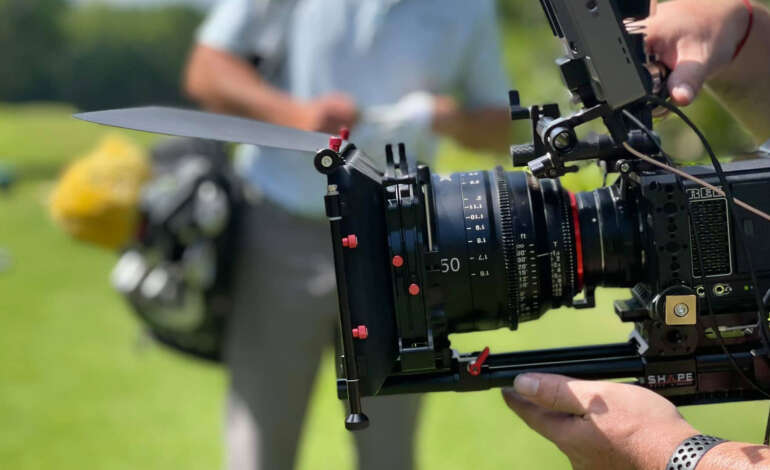Just like every industry, video production has amateurs and professionals. Nowadays, with cameras as accessible and commonplace as they are, it seems like everyone is a video amateur. Almost everyone has had some experience with taking videos or being a part of videos. However, just because video is something that everybody can do now doesn’t necessarily mean that everybody can do it well. It certainly does not mean that your desired results will be achieved. Afterall, what’s the point of creating videos if they don’t achieve your desired results?
For this reason, it’s now more important than ever to rely on professionals for video production. Besides the ability to deliver high-quality results, it’s easy to tell video professionals apart from video amateurs by their process. A strong process is key to ensuring a successful production from start to finish. From concept to completion. There are three main stages of any video production: pre-production, production, and post-production.
Pre-Production
In pre-production, a video professional will have excellent communication with their client and colleagues. This may be the most important factor during pre-production. Without effective communication, it will be impossible to keep everyone on the same page. It’s required that a client communicate their vision and goals for the project so that the video professional can share that vision. With this information, the team can craft a video strategy that determines how many videos are needed, what kind of videos, and how they will be distributed. A video professional will know exactly how to best serve their client during this stage, and a video amateur will not fully grasp what is needed for their client.
Once the vision is effectively communicated and shared by all team members, and the video strategy has been crafted, it’s time to create key pre-production materials. These will vary from production to production, and we will not always use every document. These materials include scripts, shot lists, storyboards, and schedules. Schedules are straightforward and should be used on every production. Scripts are the next most common document to use for speaking parts. Shot lists and storyboards are helpful for directors and camera operators to ensure that they’ve captured every necessary shot. Video professionals will create these materials and share them amongst clients and colleagues to ensure that everyone is still on the same page and knows the plan.
If all the necessary pre-production materials have been created, all that’s left in the pre-production stage is to tie up loose ends to be sure that everyone is ready. This may include a location scout. Location scouts are highly recommended for team members who have not yet seen the location in person so they can scope it out and plan. At this stage, it also may be necessary to hire additional personnel or talent. Does this production require a makeup artist? Hire them and send them the schedule. Does this production require a sound engineer, grip, gaffer, or drone pilot? Hire them and send them the schedule, shot list, script, and storyboard.
Production
Now that all our ducks are in a row, it’s time for production. Production ought to be a breeze and cake walk if you’ve done pre-production correctly and you’re working with video professionals. This is by far the easiest part. An amateur will struggle the most during this part because they have a lack of experience handling productions and probably did not correctly pre-produce. For a professional, production is as simple as following all the pre-production materials. Stick to the schedule, stick to the scripts, shot lists and storyboards, and it will come out great with minimal hassle.
What’s a production, however, without unexpected challenges? They always arise. I’ve never done a production without a challenge. At the end of pre-production, it’s not possible to have addressed every possible challenge, and as a result, it’s a guarantee that you will experience some unexpected ones during production. This is once again where effective communication and video professionals are required. Video professionals have experienced similar challenges before and know exactly how to handle these issues. They will solve these problems faster and with better results than an amateur. Video amateurs lack the experience and know-how to solve these challenges on the fly.
Post-Production
Sometimes it feels like the job is done, or at least the hard part is over, after production. This couldn’t be further from the truth. Videos often spend much more time in the post-production stage than they ever did in the pre-production and production stages. Once again, communication is key during this stage. Only one person will be viewing these videos thoroughly and constantly and that’s the lead editor. The editor’s closest collaborators may see the videos periodically but not nearly as much, and the client rarely views them until they’re ready. Without the clearest communication, it will be impossible to keep everybody on the same track regarding the status of the videos and the shared vision. What should the music and sound effects sound like? What should the graphics and animations look like? The editor should not work alone in determining these factors and should instead rely on everyone else’s input.
Much like cameras, video editing software is also more prevalent nowadays. More people are becoming familiar with programs such as Windows Movie Maker, iMovie, and potentially more professional software like Adobe Premiere Pro or DaVinci Resolve. For that reason, many people think that they can edit videos on their own and as a result, we are seeing an abundance of amateurly edited videos releasing publicly. If you want to gain new experience learning how to edit, there’s nothing wrong with editing your own videos for practice and for limited release. However, if you’re seeking great results from your videos and are planning to release them to wide audiences but don’t know how to edit, please don’t edit them yourself. You don’t want to be that guy. It’s embarrassing. There’s nothing wrong with finding a video professional who knows how to edit and collaborating with them. Your video’s success may be on the line.
Our Orlando Video Production Company, NG Production Films, can communicate effectively and efficiently to produce high-quality video production. We have over a decade of experience in producing the next video production project for your organization. Call NG Production Films today for a free, no-obligation consultation at 407-233-3236 or fill out our contact form for a prompt reply.




